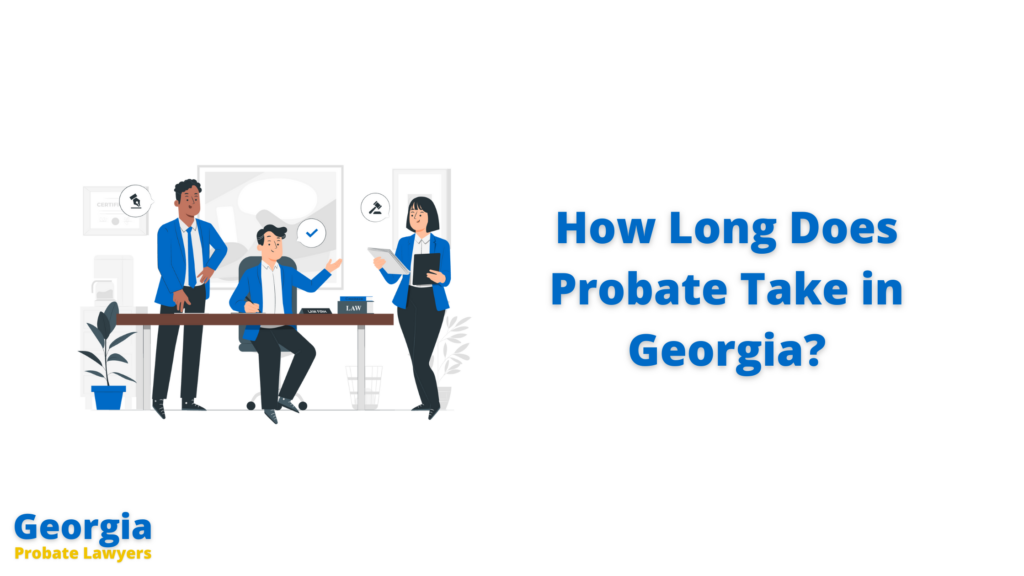
How long does probate take in Georgia?
When someone passes away, the probate process can feel overwhelming.
You’re already grieving—and now you’re stuck figuring out court paperwork, debts, and how to handle property.
In Georgia, probate usually takes six months to a year for simple cases—but it can drag out much longer if there are problems.
Let’s break it down so you know what to expect, what can speed it up, and what could slow it down.
Avoid the delays, expenses, and public exposure of probate.
Schedule your free, no-pressure Estate Planning Roadmap Call today.
"*" indicates required fields
Watch this video that breaks down the probate timeline in Georgia.
This section explains the typical probate timeline and why it matters for planning.
In Georgia, most probate cases take six months to a year.
Here’s a rough breakdown:
If everyone cooperates and the paperwork is handled correctly, probate moves faster.
If there are mistakes, missing heirs, or family fights, it can slow things down a lot.
Example:
If your loved one owned only a house and a bank account, and the heirs agree on everything, probate could finish in about 8 months.
But if there’s a missing heir or a lawsuit over the will, it could stretch over several years.
This section shows the step-by-step process so you can see where delays might happen.
Important:
You must file reports with the court showing what you’ve done.
If reports are late or incomplete, the court can delay probate.
This section warns about common slowdowns you can avoid.
This section gives practical tips to make probate faster and less stressful.
This section answers common quick questions for extra clarity.
No. Some simple cases finish in 6–8 months, especially if there’s a clear will and no debts.
Not usually in Georgia unless assets were already set up to transfer outside of probate (like with a trust, joint ownership, or beneficiary designations).
If there’s no will (called dying “intestate”), probate still happens, but Georgia’s laws decide who inherits.
Sometimes. If the court approves it or if the executor has the right authority, real estate can be sold during probate.
Whether you’re trying to protect your LLC now or dealing with a loved one’s business after they’ve passed, we can help.
Book a free strategy call with our team.
We’ll help you:
👉 Book Your Free Strategy Session
Let’s take this off your shoulders. You don’t have to do it alone.
Avoid the delays, expenses, and public exposure of probate.
Schedule your free, no-pressure Estate Planning Roadmap Call today.
"*" indicates required fields
Our Georgia probate lawyers work remotely, so you don’t have to visit an office. Here are all the counties we serve in Georgia.